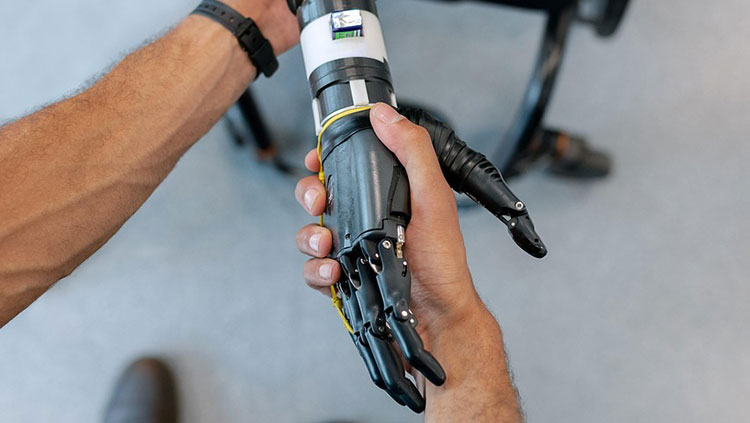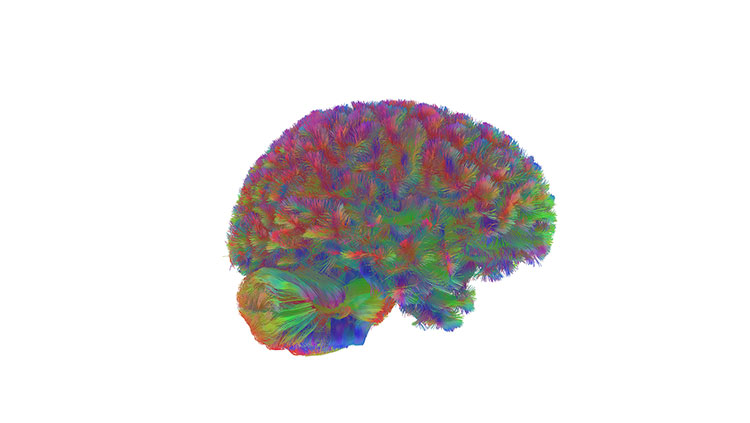ICYMI: Novel Gene Therapy Offers New Hope for Slowing Huntington’s
- Published9 Oct 2025
- Author Bella Isaacs-Thomas
- Source BrainFacts/SfN

Huntington’s is a rare, fatal neurodegenerative disease driven by deteriorating neurons in the brain. Although patients can seek interventions to manage their symptoms, there are no approved treatments to slow or stop them, and most people die within one to three decades after signs of the disease begin. But a small clinical trial involving an experimental gene therapy could pave the way for a first-of-its-kind intervention to slow Huntington’s progression.
The disease is caused by a mutation in the huntingtin gene. Everyone possesses this gene, but the mutation causes people with Huntington’s to produce a harmful version of the huntingtin protein, which causes their neurons to break down and die. The therapy, called AMT-130 and developed by the company uniQure, is delivered via a lengthy, one-time neurosurgery. It involves using a harmless virus to deliver a specific piece of DNA into the brain. This DNA was designed to ultimately instruct neurons to stop producing the faulty huntingtin protein.
Big Picture: An estimated 41,000 people in the United States are living with Huntington’s today, and more than 200,000 people nationally are at risk of developing it, according to the Huntington’s Disease Society of America. The clinical trial involved 29 patients, 17 of which received a high dose of AMT-130 and 12 of which received a low dose. Twelve people in the high dose category were followed over the course of three years, and their symptom progression slowed by 75% compared to people who did not receive any treatment. The results of the trial were reported by uniQure, and they have yet to be peer reviewed. But experts say this breakthrough offers hope that the therapy could one day gain regulatory approval and become available to patients.
Read More: In a first, a gene therapy seems to slow Huntington disease. Science
More Top Stories
- MRI scans revealed structural brain differences associated with poorer mental health markers in children from both wealthy and lower-income families who lived in regions with higher income inequality. The Guardian
- Brain activity recordings of people looking at colors allowed researchers to successfully predict what color study participants were looking at, suggesting standard color perception doesn’t change much across people. Science News
- Sustainable funding for FlyBase, an online database of studies involving fruit flies researchers regularly use to design experiments, is uncertain due to federal funding cuts to Harvard. NBC News
- A new neural map captures what happens across the entire mouse brain during decision making. CNN
- A small brain structure called the bed nucleus of the stria terminalis (BNST) may help integrate information about taste, hunger, and nutrient depletion to influence food intake. New Scientist
- Memories surrounding significant moments have greater staying power in the brain. Popular Science
- Dietary tweaks could improve the efficacy of chemoradiation for brain cancer. Live Science
- New biomarkers linked to cellular damage from repeated head injuries could improve outcomes and diagnoses for people in the early stages of CTE. STAT News
CONTENT PROVIDED BY
BrainFacts/SfN
References
What to Read Next
Also In Neuroscience in the News
Trending
Popular articles on BrainFacts.org


.jpg)















